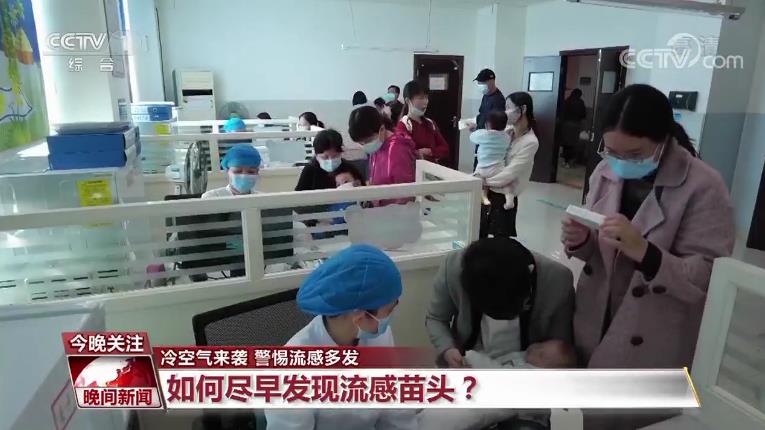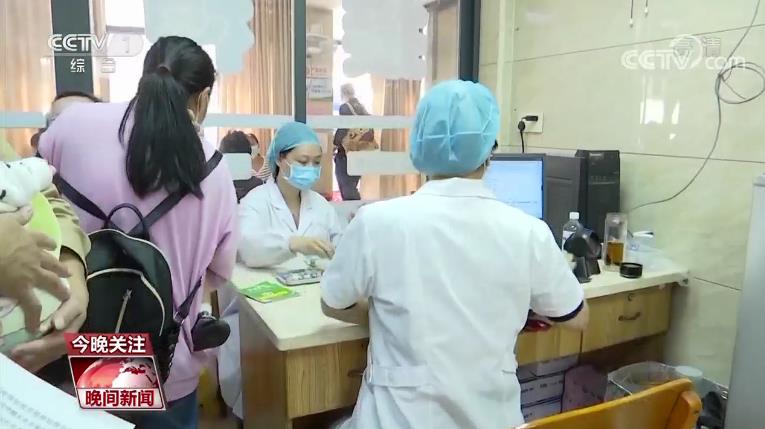How to prevent the recent frequent influenza scientifically?
CCTV News:The Central Meteorological Observatory predicts that from 28th to 30th, affected by a new cold air, there will be strong winds and cool weather in most areas from northwest to southeast. Autumn and winter are the seasons with high incidence of respiratory diseases. How to prevent them scientifically?
Xiamen, Fujian: The number of outpatients in respiratory department has increased significantly.

In the past two days, the reporter found in the respiratory clinics of several hospitals in Xiamen, Fujian that many patients were waiting in line for treatment.
According to doctors, the number of patients with respiratory diseases has increased by about 30% in the past two weeks, and many of them even come from married with children to see a doctor.
Lian Qingrong, Deputy Director of Pediatrics, Xiamen Hongai Hospital:Patients mainly focus on some diseases of respiratory system, and the most common one is actually acute upper respiratory infection.
Beijing: Influenza-like cases increased by 16.69% after the cold wave.
Let’s look at the colder north. The results of influenza surveillance by Beijing CDC show that from 15th to 21st of this month, there were 11,689 people receiving influenza-like cases in hospitals above the second level in Beijing, an increase of 16.69% compared with the same period last year. Why has it changed so much? Take a look at the weather before this week.

According to the data of China Weather Network, with the arrival of the two cold waves on November 7 and 22, the temperature fluctuation in this month is much larger than that in the same period of last year. Especially in this cold wave that started on the 7th, the temperature difference in one week is nearly 11℃. It seems that everyone should prevent colds before a new round of cooling.
Correct distinction: the general symptoms of influenza are obvious, such as high fever and pain.
Everyone has respiratory symptoms. How can you tell the common cold from the flu? Experts tell us that the most obvious difference is that the most uncomfortable part of patients with common cold is usually the upper respiratory tract, and once they get the flu, the whole body symptoms will be more obvious.
Li Haichao, Vice President of Peking University First Hospital and Professor of Respiratory and Critical Care Medicine:The common cold generally does not have obvious systemic symptoms, that is, runny nose, sneezing, phlegm-blocking symptoms, a lot of runny nose, and then there may be throat discomfort, but the flu will be high fever and body aches are very obvious.
After the correct distinction is made, how to effectively prevent and treat it? What misunderstandings need to be avoided?
How to find the flu symptoms as soon as possible?

Li Haichao, Vice President of Peking University First Hospital and Professor of Respiratory and Critical Care Medicine:Now the flu has begun to show signs of epidemic. You may have contacted some people. For example, in such a unit, someone at home has fever symptoms, and then you are infected. At this time, if his infection symptoms are, for example, high fever, chills, even muscle aches and headaches, this is a typical flu performance, which can be basically clarified.
Experts said that at present, it is in the high season of influenza, coupled with the need for epidemic prevention and control. If there are symptoms such as high fever, it is recommended to seek medical advice as soon as possible to judge the condition.
You can’t carry the flu hard, especially for key people.
Because influenza can easily lead to serious complications, people at high risk of influenza, such as the elderly with basic diseases and children with weak immunity, should pay special attention.
Hu Shaoming, Deputy Chief Physician of Jialian Street Community Health Service Center, Xiamen City, Fujian Province:Patients with chronic diseases and low immunity will have some serious complications, such as pneumonia, meningitis, or gastrointestinal diseases, which will cause some serious organ failure.
You can’t take medicine blindly to prevent influenza.
Some people in life often drink cold granules or take other drugs orally after feeling cold or flu symptoms. Experts say that you can’t take medicine blindly to prevent colds.
Li Haichao, Vice President of Peking University First Hospital and Professor of Respiratory and Critical Care Medicine:You are a high-risk influenza patient. Under special circumstances, this group of people can use some preventive drugs appropriately. For example, there are some effective drugs for influenza, such as oseltamivir, which can be used selectively, but this group must be controlled and not generalized.

To prevent influenza, wearing a mask and frequent ventilation are standard.
Experts emphasize that vaccination is still the most effective way to prevent influenza. In addition, you should wear a mask and wash your hands frequently. Whether at home, office, school or nursing home, you should always be ventilated.
Attending physician Cai Jinghuang, Department of Respiratory and Critical Care Medicine, Zhongshan Hospital affiliated to Xiamen University:For example, if a patient with a cold sneezes here, all his cold viruses are in this room. We should ventilate in time to reduce the concentration.
Li Haichao, Vice President of Peking University First Hospital and Professor of Respiratory and Critical Care Medicine:Don’t be overtired, keep warm when the weather changes, don’t gather, and maintain your resistance. You eat well and sleep well, so you are also resistant to the flu virus.